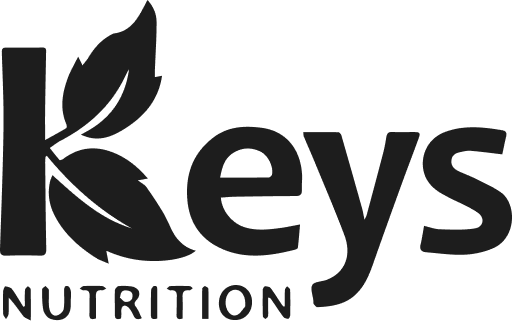The pursuit of effective muscle mass gain is more than just an aesthetic goal. It is a physical and nutritional journey that requires a smart and planned approach. In this article, we will delve into the ins and outs of a well-designed nutritional plan for mass gain, emphasizing fundamental principles, smart food choices, and strategies to maximize results.
Understanding the Fundamentals of Muscle Mass Gain
The Key Role of Nutrition
Nutrition is the central pillar of any muscle mass gain program. The process of building muscle requires a caloric surplus, but it's not merely about consuming more calories. The balance between macronutrients (proteins, carbohydrates, and fats) and micronutrients (vitamins and minerals) plays a crucial role in the success of your nutritional plan.
The Importance of Proteins
Proteins are the fundamental building blocks of muscle. Ensure that you include protein-rich sources in every meal. Eggs, chicken, fish, dairy products, and protein-rich vegetables like beans and lentils should become key elements of your diet.
Carbohydrate Energy
Carbohydrates are the main source of energy for muscles. Opt for complex carbohydrates such as whole grains, sweet potatoes, and vegetables to provide sustained energy release throughout the day.
Fats for Hormonal Balance
Healthy fats play a crucial role in hormone production, including those involved in muscle growth. Integrate sources of healthy fats like avocados, nuts, seeds, and olive and fish oils into your diet.
Developing a Structured Meal Plan
Calculating Caloric Needs
The first step in developing a nutritional plan is determining your caloric needs. A slight caloric surplus is necessary for mass gain, but an excessive surplus can lead to unwanted fat gain. Use online calculators or consult a nutritionist for a personalized estimate of your caloric needs.
Nutrient Distribution Throughout the Day
Balanced nutrient distribution throughout the day is crucial. Ensure you consume protein at each meal to stimulate muscle synthesis. Also, distribute carbohydrates to provide a constant energy flow, and ensure that fats are present in adequate proportions.
The Importance of Pre and Post-Workout Meals
Meals before and after a workout play a key role in muscle mass gain. A pre-workout meal should include carbohydrates for energy and proteins to prevent muscle breakdown. The post-workout meal should focus on replenishing glycogen reserves and providing proteins for muscle recovery.
Strategic Food Choices
Lean Proteins
Lean protein sources are essential to maximize muscle growth while minimizing fat intake. Opt for lean meats like chicken and turkey, fish, eggs, low-fat dairy, and plant-based protein alternatives.
Complex Carbohydrates
Prioritize whole carbohydrates that provide additional nutrients along with energy. Sweet potatoes, quinoa, oats, and vegetables are excellent choices. Avoid processed and refined carbohydrates that can lead to undesirable insulin spikes.
Healthy Fats
Healthy fats are crucial to maintaining hormonal balance. Incorporate avocados, nuts, seeds, olive oil, and fatty fish into your diet. Avoid excessive saturated fats, but don't eliminate them entirely, as they also play an essential role.
Strategies to Maximize Results
Monitoring Progress and Adjusting
Muscle mass gain is an evolving process. Regularly monitor your progress by measuring your weight, strength, and measurements. If results plateau, adjust your nutritional plan accordingly by modifying calories, macronutrients, or food choices.
Optimal Hydration
Hydration is often underestimated in nutritional plans. Optimal hydration is crucial for sports performance, muscle recovery, and metabolism. Ensure you drink enough water throughout the day.
Sleep and Recovery
Sleep is a frequently overlooked component of muscle mass gain. The body regenerates and builds muscles during sleep. Aim for 7 to 9 hours of sleep per night to maximize muscle gains.
Maximizing Benefits with a Progressive Approach
Integrating Supplements Wisely
Supplements can be valuable allies in your muscle mass gain journey. However, it's crucial to integrate them wisely and under the supervision of a healthcare professional. Protein powders can be a convenient way to meet your protein needs, and essential amino acids can promote protein synthesis. Consult an expert to determine supplements suitable for your specific goals.
Diversifying Nutrient Sources
Dietary variety is the key to a comprehensive nutritional intake. By incorporating a diversity of protein, carbohydrate, and fat sources into your diet, you ensure a wide range of essential nutrients. Explore new and nutritious foods to maintain interest and diversity in your diet.
The Psychological Aspect of Mass Gain
Managing Expectations and Patience
Muscle mass gain is a time-consuming process that requires patience. It's essential to manage your expectations realistically and recognize that results won't be immediate. Consistency in your nutritional and training approach is the key to long-term success.
Finding the Balance Between Pleasure and Goals
While achieving your muscle mass gain goals is a priority, it's equally important to find a balance between goal-oriented nutrition and food enjoyment. Allow yourself occasional indulgences to maintain a healthy relationship with food and prevent any feelings of deprivation.
Conclusion: A Journey of Discipline and Consistency
Developing an effective nutritional plan for muscle mass gain is a journey that demands discipline, knowledge, and consistency. By understanding the fundamentals of nutrition, structuring a balanced meal plan, and making strategic food choices, you can create an optimal environment for muscle growth. Monitor your progress, adjust based on results, and don't forget the importance of hydration, sleep, and recovery. With a smart approach, you can achieve your muscle mass gain goals in a healthy and sustainable manner.
Muscle mass gain goes beyond simple physical transformation. It's a holistic journey that integrates nutrition, training, recovery, and mental management. By crafting an intelligent nutritional plan, gradually adjusting your approach, and staying mindful of psychological aspects, you establish a framework conducive to significant muscle gains. Remember that every body reacts differently, be adaptable in your approach, and appreciate each step of this journey toward successful muscle mass gain.


